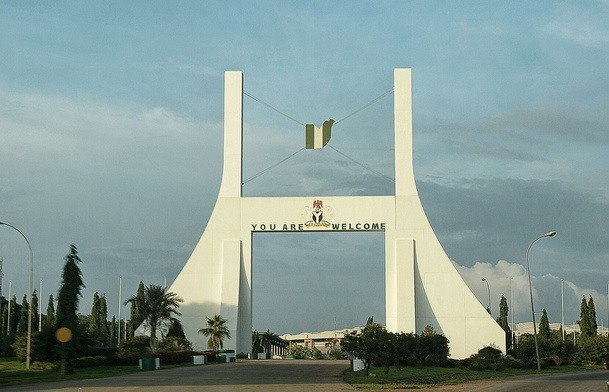Gishiri, an FCT settlement without basic social amenities
Gishiri, a settlement situated a few minutes’ drive from highbrow Maitama District in the Federal Capital Territory, Abuja, has been battling with acute water shortage among other basic social amenities. A visit by Aso Chronicle revealed how the community, where middle level and low-ranking civil servants, support staff and artisans cohabit, is faring without […]

Gishiri, a settlement situated a few minutes’ drive from highbrow Maitama District in the Federal Capital Territory, Abuja, has been battling with acute water shortage among other basic social amenities.
A visit by Aso Chronicle revealed how the community, where middle level and low-ranking civil servants, support staff and artisans cohabit, is faring without many basic necessities of human existence.
Suleiman Abdulmaliki, an industrial cleaner, said the community has been battling with water challenges for a very long time, as they get water off and on.
He said: “In my house, though I have a tap but it is not always dispensing water. At times, it can take two to three months remaining dry. I only see water once in a while.
“But, since we get it from local vendors, I don’t bother much. We’re not getting anything from the government in this community,’’ he lamented.
Our reporter observed that, apart from the absence of reliable pipe-borne water supply, the community also lacks a functioning primary healthcare facility; as a result of which Abdulmaliki said he lost a baby.
“We don’t have a functioning primary healthcare facility here. The only one we’ve is not working. About two years ago, my wife lost a baby because we don’t have a standard medical facility in this community.
“There’s nowhere one can get antenatal/postnatal or any other thing; we don’t get anything reasonable. So, that’s how I ended up losing my child. These are two basic things we’re lacking.’’
Edward Okara, a POS operator, also validated the earlier claims, saying, “We don’t usually get water during the daytime, they bring it in the night when people have gone to bed. So, people are forced to buy water from vendors the next day. That’s very bad. People pay for water but they don’t get to make use of it.
“Aside from that, we have too many challenges in this community. We even share the electricity in this community such that some would get it today and others won’t. And we’re paying the same amount as others.”
Suleiman Musa, an electrician, said “See the condition of the road, sometimes when vehicles are passing by you will see they’re damaging the water pipes.
“And the other time, when they came to fix this road, the bulldozer brought out the pipes and the problem worsened.
A water vendor, Aminu Rabi’u lamented that vending water is tasking because when there’s water scarcity vendors also bear some of the consequences.
“We have to go to Mabushi and Jahi to fetch water as a result we’ve to increase the price of the water,” he added.
Daily Trust reports that apart from the pressing water scarcity, the community also faces many other challenges such as epileptic power supply, hiking in electricity tariff, bad roads, security challenges and the filthy condition of the environment.
When contacted, the head of information unit, Abuja Municipal Area Council (AMAC), Mrs. Patience Olaloye, requested that a text message be sent to her, which didn’t reply at press time.
